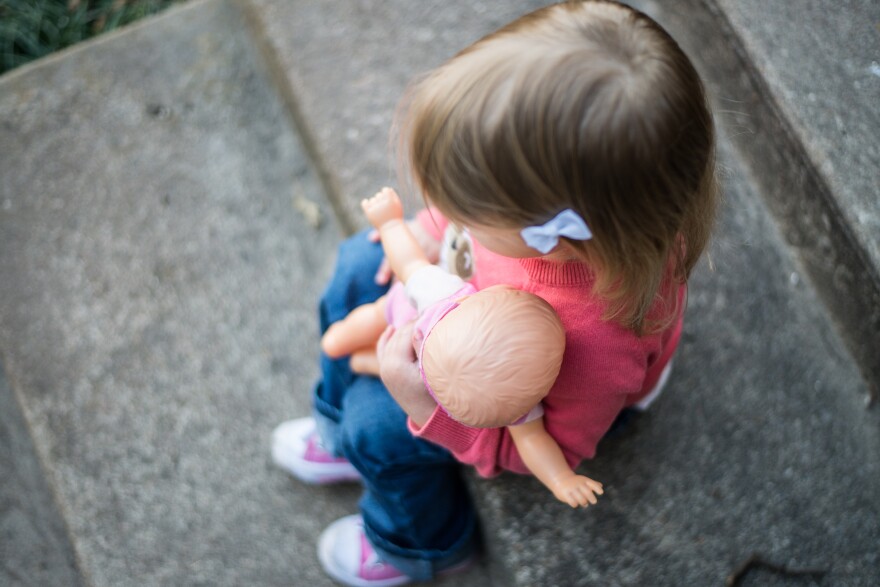If you were to ask a group of parents today if they agree with the idea of spanking their kids, you would probably get a mixed response. The issue of spanking remains widely debated, despite growing evidence that shows physical discipline can pose serious risks to kids.
However, according to findings released Monday in the journal Pediatrics, the share of moms in the U.S. who spank their children - or who are willing to admit it - has declined significantly over the past 25 years.
Researchers analyzed data from four national studies conducted between 1988 and 2011. They found 46% of median-income moms of kindergarten-aged children endorsed physical discipline at the start of that period.
By 2011, it fell to 21% of moms.
The decline occurred regardless of socioeconomic level. Even among the poorest moms, the share who supported spanking decreased from about 50% in 1998 to 30% in 2011.
Rebecca Ryan is a psychologist at Georgetown University who led the analysis. She told NPR:
There's been a substantial decrease in the share of parents who are reporting having spanked their child in the last week. And there's a been substantial decrease in the share of parents who say they would spank or hit their child in response to misbehavior. It could be that parents are realizing that physical discipline may be less effective than some of the alternatives.
Evidence suggests physical punishment, including spanking, can actually make kids' misbehavior worse.
Researchers say it can lead to increased aggression, antisocial behavior, and mood and anxiety disorders. Alan Kazdin, a Yale University psychology professor, told the American Psychological Association:
You cannot punish out these behaviors that you do not want. There is no need for corporal punishment based on the research. We are not giving up an effective technique. We are saying this is a horrible thing that does not work.
But some still believe that spanking can be an appropriate form of discipline. Clinical psychologist Jared Pingleton wrote for TIME:
Properly understood and administered, spanking is most effective as a deterrent to undesirable behavior for younger preschoolers (but never for infants). That’s because reasoning and taking away privileges often simply don’t work with kids in that age range. As children age, spanking should become even less frequent as other types of consequences are utilized. Spanking should be phased out completely before adolescence.
And not long ago, I told you about corporal punishment still happening in modern American public schools:
Corporal punishment is banned in 31 states and Washington, D.C., but is still legal in 19 states – mainly in the South, Southwest, and Midwest. But reports of physical discipline still occur in states where it's legally banned, like Maryland, according to The Atlantic.
So what are moms who aren't spanking their kids doing instead?
The new analysis found that the number of moms who supported nonphysical punishments, like time-outs, increased during the same period.
Researcher Rebecca Ryan says that while her study may be limited by parents' reluctance to admit they spank their kids, a decline in reports of child abuse during the study period makes her confident in her findings. She said in an email to NPR:
Spanking is not the same as physical abuse, but the reduction in official physical abuse reports suggests the changes in physical discipline endorsement reported here reflect changes in actual behavior.




